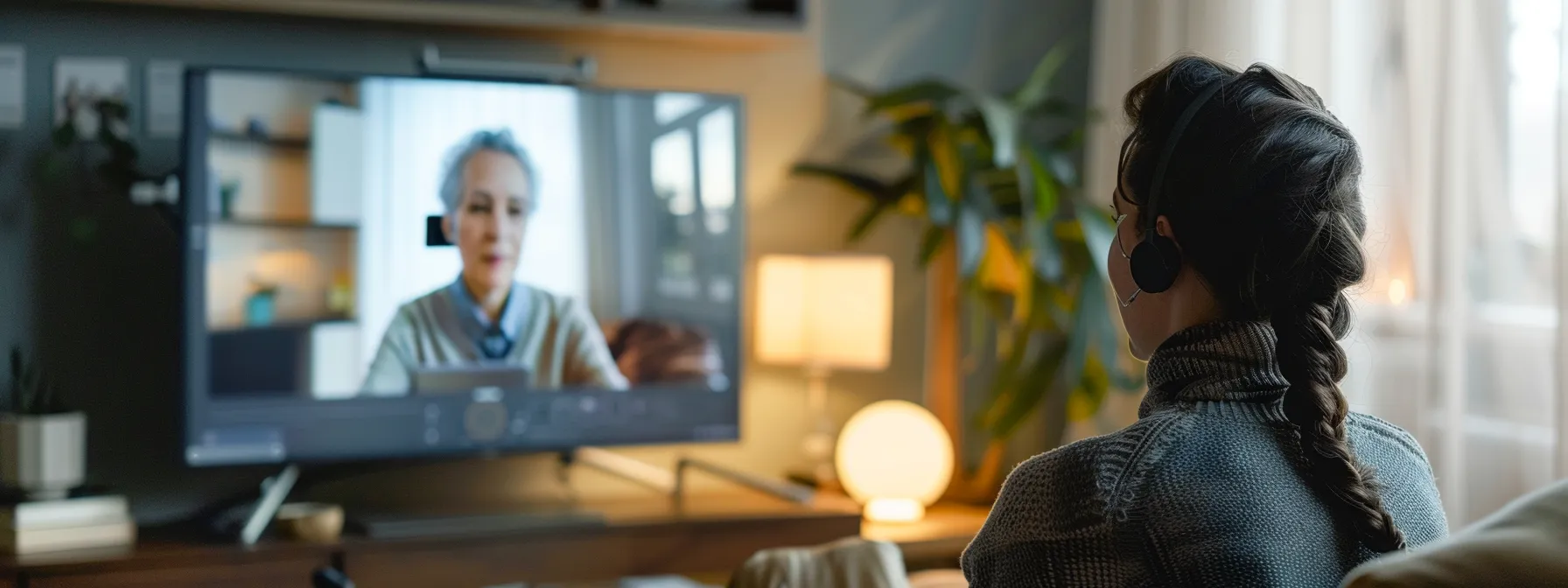The Role of Online Therapy: How Virtual Counseling is Transforming Mental Health
The landscape of mental health services has shifted dramatically with the advent of online therapy. Virtual counseling is no longer a fringe offering but a mainstream resource for individuals seeking psychological support. The advantages of accessing therapy from the comfort of one’s home have been especially highlighted during global challenges, such as the COVID-19 pandemic, where traditional face-to-face interactions were limited. Online therapy has proven to be more than a stopgap measure; it’s a viable long-term solution for many. Below, we will explore the various aspects of online therapy and how it is reshaping the field of mental health.
The Emergence of Online Therapy in Modern Mental Health Practices

Online therapy has grown alongside advancements in the internet and video technology, making mental health support more accessible to people in remote areas or those with limited mobility. With various formats like video calls, messaging, and even virtual reality, teletherapy offers flexibility that suits different communication preferences.
Backed by professional guidelines and ethical standards, online therapy is now widely accepted and trusted. A standout example is the growth of online therapy services in Maryland, where providers offer secure, effective care across distances, serving as a model for other regions looking to expand virtual mental health services.
Virtual Counseling Advantages: Accessibility and Anonymity
Online therapy significantly improves accessibility by removing common barriers like transportation, physical limitations, and lack of nearby services. It’s especially beneficial for those in small communities or facing mental health stigma, offering a discreet and convenient alternative. The virtual format also encourages greater openness, as clients may feel more at ease sharing sensitive information remotely.
Flexible scheduling options allow for appointments outside regular hours, making it easier to fit therapy into busy lives. Online sessions often come with shorter wait times, ensuring faster access during critical moments. The overall cost-effectiveness benefits both providers and clients, often resulting in more affordable, consistent mental health care.
Navigating the Challenges of Providing Therapy Through a Screen
Online therapy offers convenience but comes with notable challenges. The lack of in-person interaction can hinder rapport-building and make it harder to interpret non-verbal cues. Technical problems like poor internet connections and software issues may disrupt sessions, creating frustration. Ensuring digital confidentiality also demands strong cybersecurity measures.
Therapists must be proficient with technology, often requiring extra training, and must recognize that online therapy may not suit all clients, especially those needing hands-on care or lacking digital skills. Legal and ethical concerns add complexity, especially when providing services across state or national borders, requiring therapists to follow proper licensing and regional regulations.
Comparing the Efficacy of Online Therapy to Traditional In-Person Sessions

Research shows that virtual counseling is often as effective as in-person therapy for issues like anxiety, depression, and stress. Online therapy maintains a strong therapeutic alliance, and many clients express high satisfaction due to its accessibility and convenience. It may not be appropriate for everyone, particularly those with severe mental health conditions that require closer supervision or the immediacy of face-to-face interaction.
While virtual therapy expands access to care, the decision between online and in-person sessions should depend on each client’s needs, preferences, and clinical situation. Mental health professionals play a key role in evaluating and recommending the most suitable format for treatment.
Future Trends in Online Therapy and Technological Innovations in Mental Health Care
The future of online therapy is rapidly evolving, driven by advancements in technology such as virtual and augmented reality for immersive treatment, and AI for personalized support tools. Mobile health applications are also playing a key role by offering real-time features like mood tracking, mindfulness, and chatbot assistance to enhance user engagement.
Interdisciplinary collaborations among behavioral scientists, data analysts, and clinicians are refining therapeutic approaches for more individualized care. As these tools grow more sophisticated, ethical standards and professional guidelines are being updated to ensure responsible use. These innovations are reshaping how mental health services are accessed and delivered.
Overall, the integration of online therapy into mental health practices marks a significant evolution in how support and counseling are delivered. Its rise reflects a broader societal move towards technology-driven solutions, providing both opportunities and challenges for clients and therapists alike. As we embrace these changes, the potential for improved access, effectiveness, and innovation in mental health care is expansive.




